There is a well-heeled saying in fishing that virtually everyone has heard uttered many times, "Never leave fish to find fish." And it's well heeled for a reason. The bulk of the game in fishing is being in the right place at the right time and having the fish reveal themselves to you. Still, I'll often have to remind myself that even if the fish I've found aren't taking flies with abandon, it can often be foolish to head off for greener pastures which I assume lie just around the next bend. In reality, they rarely do. Patience is a valuable tool when on the river.
Strangely, my tendency towards a lack of patience when I'm getting shots and missing them is flipped on its ear when the opportunities aren't there. Often, I'll head to the river with a game plan in mind, and cling to it for far too long.
Recently, a good friend and I headed out for a float on Pennsylvania's Lehigh River. To put it kindly, we're both new to the art of oarsmanship. But, we've been toting around our new FlyCraft Stealth drift boat for the last couple of months and doing our best to find chances to float. Unlike the west, the east coast isn't flush with drift boat water, especially that which doesn't involve long drives and multi-day time investments. So, when we heard that fall weather had brought water temperatures into shape on the Lehigh -- which is just over an hour's drive from home -- we jumped on it, toting visions of long dry fly drifts and rising trout, mixed with judicious nymphing of the Lehigh's plentiful riffles and runs.
Unfortunately, while mother nature had taken care of the temperature of the water, it hadn't given us much of it to work with. Weeks of little to no rain had left the Lehigh in record-low-flow condition. Still floatable, but as it turned out, distinctly lower than we expected. The result was riffles and runs that were far shorter and more shallow that we anticipated and interminable, shallow slack water sections with relatively little going on. Sure, we picked up a couple of rainbows and fallfish here and there as we floated, but mainly we spent the day learning how to oar -- and, more than occasionally, walk -- the boat. Given how much practice we both need on the oars, this wasn't necessarily a bad thing, but it wasn't the reason we were there.
We persisted. We were there to float. And to catch fish while doing it. After all, we were in a boat. And there were trout. Clearly things would fall into line if we just stuck with it. So we did.
A couple of hours later, with the situation largely unchanged, we came to the head of a small boulder garden and stumbled upon four other boats all toting along anglers. Despite the fine looking water they were floating through, for obvious reasons, we didn't want to fish it so shortly after they'd worked it. So we decided to anchor up, have lunch and wait it out for a bit. As we waited, we spied a small, promising-looking back channel just upstream of where we had anchored that was created by the island we had just floated past.
Partly due to curiosity, but mostly in an effort to improve the remainder of our float by putting more time between us and the four boats that had just worked the water below us, we strapped on our waist packs and decided to explore on foot. The back channel revealed itself to be flush with a plethora of small but relatively deep riffles and runs punctuated by pool-creating boulders. The fish were there too. And they cooperated.
The hour that followed turned out to be the best of the day, with several healthy rainbows and fat brown trout coming to hand from the side channel's current seams and pools.
It all stood to reason, really. On a day where the water was thin, the fish had taken to the pocket water. Had we bothered to think about it, we might have headed off to explore other side channels or anchored to ply other pocket water on foot. And the boat would have allowed to us to so extensively, transporting us between spots and allowing us to cover far more pocket water than would have been able to solely on foot. It might have been grand.
But we were there to float. And to catch fish doing it. So we persisted, in spite of our lack of success. We were patient, only for far longer than we should have been, letting our expectations cloud our judgement. Patience, while a valuable tool for the river, must always be tempered with prudence. You can always have too much of a good thing.


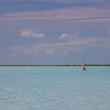
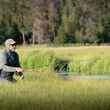
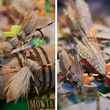
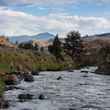
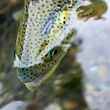




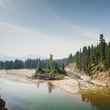
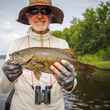

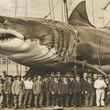
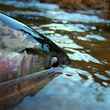
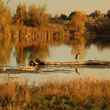



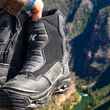
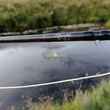



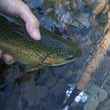
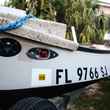


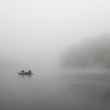
Comments